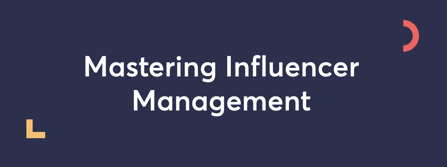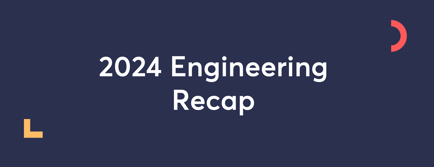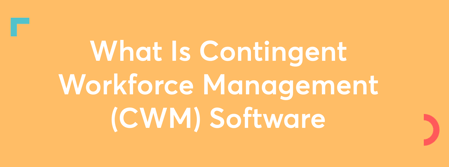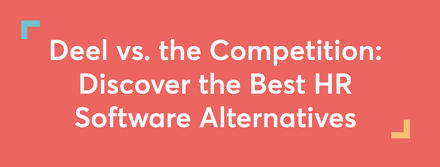The Ultimate Guide to External Game Development
- 20 Jun 2024
- 11 mins read
- Posted in
Content:
For kids growing up in the 90s, Saturdays meant cozy afternoons with friends, playing newly released game titles like Super Mario and The Legend of Zelda. Many call this the golden era of gaming – with home consoles becoming more popular, and new innovations in 3D graphics coming up.
Somewhere down the line, gaming went from being a casual activity for kids to a booming global phenomenon that’s taken the world by storm. So how big is the gaming industry really? In 2022, the video game industry generated revenue worth $184.4 billion. To put it in context, this makes it bigger than the global movie industry (with box office revenue of $26 billion) and the music industry (with revenue of $26.2 billion) combined!
Today, with new innovations like virtual reality, the industry shows no sign of letting up the speed at which it evolves. So what kind of expertise is needed to drive these results? And how does this impact the external talent space? Let’s have a look.
Understanding External Game Development
What Does External Game Development Involve and What Does It Mean?
As any game developer would know, the sheer diversity of talent and expertise needed to make even a single successful game is staggering. In fact, it is almost impossible for developers and publishers to maintain an in-house team of all the talent that is required.
That’s why they turn to external service providers like third-party vendors and freelancers to meet these needs. This has given rise to a separate, multi-million dollar pillar of the industry that is known as external game development.
The Rise of Remote Freelancing in Game Development
Industry reports show that external development is continuing to grow, with publishers dedicating a big portion of their spends to vendors and remote freelancers.
The External Development Summit (XDS) 2024 report showed that publishers are actually spending more on external development now – with the number of buyers spending more than $50 million annually increasing year-on-year, and fewer spending less than $500K annually. This is likely a result of the market downturn, with publishers and developers managing their requirements with external support rather than growing their in-house teams. In terms of the most popular services outsourced, art, animation, and cinematics and VFX topped the list.
Key Roles and Responsibilities in Game Development
Essential Roles in a Game Development Team
There are essentially 3 stages of the game development process. The pre-production stage comes first, where the game concept is developed. This involves everything from deciding the game genre, developing the storyline, plot and gameplay, and finalizing the platforms where the game will be published. The art style is also finalized at this stage. Since this is where a majority of decisions are made, pre-production is often handled in-house.
But once you get to the production stage, the funnel widens out considerably – and this is where you rely more on external talent. Here, each aspect of the game will need to be designed and created, so you’ll need multiple professionals with different skill sets – artists, animators, cinematics /VFX experts, engineering, UI/UX, QA, audio experts and more. It is seldom possible to have all these experts in-house – so it’s much more economic to turn to remote freelancers.
The third stage of the development process happens after beta testing and game release. This is the post-production stage where you can fix bugs, make improvements and more. There’s also further scope to plan for game monetization here, by creating additional extras and downloadable content for post release. Here again, you can look to external talent to help you create these.
Defining Responsibilities for Freelancers Game Devs
When you have multiple teams of talent working from around the globe to create a single game, having a streamlined process is a necessity. To achieve this, each remote freelancer or service provider will need to have their responsibilities clearly defined.First, offer adequate background about the game – the genre, the storyline, what stage of development it is at, what platform it is to go on and more. Next, outline the scope, quality and breadth of work, and identify exactly what skills you will require to meet those needs. An asset artist, for example, will need to know the exact art style you are looking for, how much of the work you are looking to outsource, and by when they will need to deliver. This enables them to assess the work and tell you whether they have the necessary skills and availability to take it on.
From a qualitative point of view, you will need to give your freelancers precise benchmarks they need to meet in order to match up to the quality you are looking for. They will need to adhere to the specific style guides, and utilize the same tools, technologies and processes the rest of the team is using, in order to maintain consistency.
Benefits of External Game Development
Opportunities to make the game richer
One of the key benefits of remote game development is that service providers bring in new specializations and fresh ideas to complement the in-house team.
Having a diverse team creates opportunities for inter-departmental collaboration too – ultimately making the game richer. For example, UX/UI designers interacting with implementation teams can lead to thrilling new possibilities for users. This enables developers to not only produce more content but also add exciting new features to their games. 65% of developers and publishers name this as a top reason why they opt for external talent.
Cost Savings and Efficiency
Today, even making a basic game requires such a diverse variety of functions that developers would need to make a huge number of hires to cover each function. This is not a feasible solution – especially if a very specific expertise is required for one game, one time.
Moreover, your permanent staff needs to be trained, which means additional time before the project can move ahead. This often proves unsuitable, given that timelines in gaming tend to be tight and having a team on the bench means huge expenses.
Highly skilled freelancers and external service providers on the other hand, are trained to jump right in and start delivering results – with none of the massive overheads that a full-time hire requires.
Flexibility to Ramp Up or Down
External talent gives developers a huge advantage when it comes to planning their pipelines to be on time and budget – while still enjoying flexibility.
With freelancers involved, a developer can ramp up the project, bring in extra support and specific expertise as they get closer to their delivery date, and then ramp down again afterwards, thus minimizing the risk of overshooting deadlines.
Additionally, game development is not always straightforward. There are always moving deadlines to deal with, or an extra feature to be added at the last minute. Scrambling to meet these changing needs with full-time hires is unfeasible and can lead to delays and inefficiencies. The flexibility of external teams is especially helpful for indie and mid-size developers, who need to meet project needs while still keeping their in-house teams lean.
Leveraging Global Talent and Expertise
Finally, a major advantage of using freelancers is the chance to work with some of the best talent globally, without geography being a restriction. This enables a developer sitting in San Francisco to bring together the best VFX expert in India, the top 3D artist in Japan and the most sought-after animators in Canada to work on a single game.
It also offers a huge advantage when you have a tight release deadline. For example, if you have artists in all these countries mentioned above, you pretty much have someone working round the clock, creating assets across time zones.
Finding and Hiring the Right Game Developers
Now that we have established the incredible pros of working with freelance game developers, how do you go about finding these talented individuals?
Best Platforms to Hire Freelance Game Devs
Fortunately, gaming fosters a tight-knit, highly active community that brings players, developers and creators together. Aside from news and discussion forums, platforms like Art Station, TIGSource, PolyCount, IndieDB and ResetEra also have job boards where you can find great talent.
Additionally, freelance marketplaces are a great place to seek independent game service providers. For example, TalentDesk’s parent company PeoplePerHour is a top freelancing community that brings together the best global talent, and has a job board dedicated to game development.
Other exclusive freelance platforms like TopTal and Gun.io are fantastic options too, as is X (formerly known as Twitter). The latter is used by many developers to spark discussions, post jobs through gaming-specific job bots and find suitable artists, designers and more using industry hashtags like #gamedev or #gamedevjobs.
Assessing Skills and Expertise for Game Projects
Game development platforms will put you in touch with hundreds, if not thousands of talented professionals. But how do you choose the ones who’ll be the best fit for your game?
First, identify the specific function you are looking for help with. For example, 2D art, 3D art, facial capture, QA, VR/AR – these are all very diverse functions and require specific sets of skills. Start your discussion with the freelancer by ascertaining how much relevant experience they have in the specific function you are looking for.
Also establish whether they have a skillset match on the style you are looking for. 3D art, for instance, can be stylized, realistic or anything in between. And artists too, have their own specializations – with some excelling in character art, others specializing in hard surface, landscapes or more. Ask your shortlisted freelancers about what titles they have worked on in the past and don’t forget to go through their portfolios to get a fair understanding of their specific capabilities.
Next, find out about their technical proficiencies. Game development professionals need to be familiar with programming languages like Javascript, Python, C++. They would also need to know their way around game engines like Unity3D and Unreal Engine.
Navigating Challenges in External Game Development
Maintaining Consistency in Quality
This is one of the biggest challenges of having multiple individuals across the globe working on one title. Think about it – various art assets may be created by different freelancers, but in the finished game, you cannot have a tree and a flower look like they don’t both fit into the same universe! The game needs to offer a uniform experience to players.
To navigate this challenge, you would need a top-notch briefing process where the freelancer would be given the exact style guide to follow. Set tangible benchmarks for your freelancers so that the briefing requirements don’t end up being abstract and open to interpretation. At the other end, you’ll also need a solid QC process where your managers assess the work coming in from various sources and ensure they are all up to the same standard.
Managing Remote Teams and Freelancers Effectively
Working with remote teams means you need to manage dependencies flawlessly. A small delay from even one service provider can create a cascading effect on the entire project.
Additionally, you’ll also need to ensure that there are no logistical issues to derail the project. This means making sure that each freelancer involved has adequate hardware and compatible software.
Tackling challenges like these requires you to have strong project management protocols, where your managers have complete visibility on every last detail – who is working on which asset, how far along are they, what are the timelines they need to follow and so on.
Overcoming Remote Communication and Collaboration Hurdles
29% of developers and publishers named communication as a major challenge. When you are working with teams and service providers across geographies, language barriers can be a big issue – understandably. Similarly, while having a presence across time zones can be a huge boon in terms of maintaining round-the-clock efficiencies, it can also hinder collaboration.
Here, having centralized communication platforms and processes can help immensely. It enables different teams and service providers to collaborate in one place in a transparent, streamlined manner. Proactive management makes all the difference too – when you ensure that requirements are well outlined, concerns are highlighted early, and clear feedback is provided, you sidestep multiple issues.
Mitigating Risks and Managing Expectations with Freelancers
In a highly competitive industry like gaming, Intellectual Property (IP) risks are a big factor to be kept in mind. With hundreds of freelancers working on the title, you will need to make sure that they all uphold confidentiality clauses. If breached, this can have a huge impact on how your game performs – with losses running into millions of dollars.
This is why you need a strong focus on documentation and paperwork. Each freelancer will need to sign watertight freelance contracts and NDAs. You may additionally want to outline the data security and IP expectations as you bring them on board – highlighting the best practices and making them aware of the risks if they are not followed.
Adapting to Changing Project Needs and Priorities
For any game, introducing a significant change in project requirements can result in huge losses.
For example, imagine there’s a design change once the project is already underway. This essentially means that you will need to restart the concept and prototyping processes anew. Timelines and project requirements will need to be renegotiated. Your freelancers might need to scrap every last piece of artwork, animation or asset they’ve created so far and then start from scratch.
To avoid this, ensure you have strong concept and pre-production processes in the first place – where every alternative that can be considered is debated, discussed and finalized with every stakeholder present.
That said, there can be smaller changes in project needs – where you may choose to prioritize certain assets over others. Any experienced service provider should be able to accommodate this, provided they have enough time and notice. This is also where having a bigger freelancer network helps. It lets you reach out to a greater number of experts – having them step in and help you pivot as your priorities change.
Tools and Platforms for External Game Development
How TalentDesk Can Help Streamline Freelance Game Development
So as we have seen, there are many nuances and complexities to external game development. A comprehensive system like TalentDesk can help you bridge the gaps and navigate the challenges, making your external engagements smooth and hassle-free.
You start reaping the advantages right from the time you start looking for GameDev talent. Our tie-up with PeoplePerHour lets you access top global talent and shortlist and select the best candidates with a few clicks.
Once you have made your selection, our platform enables you to create a customized onboarding process, keep track of whether every freelancer has signed the necessary contracts and NDAs and store all their paperwork securely and compliantly.
Our sophisticated project management features offer complete visibility of every part of your project through a single dashboard. This lets your managers stay on top of every task that has been outsourced – giving them a comprehensive view of talent, timelines and budgets as they go along.
TalentDesk also has centralized communication capabilities that makes it easy to collaborate transparently, and with ease. It also offers a single platform through which you can share files and documents with your freelancers – be it style guides, project benchmark documents or reference images.
Top Tools for Game Development
The number of game development tools available in the market today are just as diverse and multi-faceted as the skills and functions involved. That said, there are some truly sophisticated options available today, like:- Unity: This is a game engine that offers end-to-end tools and services that enable developers to create content and distribute it across multiple platforms. Suitable for 2D, 3D, VR assets and more, it powers creativity and innovation in real time.
- Unreal Engine: One of the biggest game development engines, it offers a comprehensive suite of tools for real time 3D creation. Its capabilities to build pipelines, create hyper realistic characters, animate the smallest details and render effects is unparalleled.
- Autodesk 3DS Max: This is a top software for animation and 3D modeling. 3DS Max is highly favored for its advanced capabilities and time-saving tools that enable artists to produce enhanced textures, shading and more.
- ZBrush: Another user favorite, this is a highly sophisticated digital sculpting and painting software. It helps asset creators produce stunning effects in terms of surface textures, models illustrations and so much more.
- Houdini: This tool enables designers and animators to create compelling visual effects and dynamic simulations. Its capabilities to create complex effects like fire, fog or smoke make it a hot favorite among creators.
Strategies for Successful External Game Development
Building Long-term Relationships with Freelancers
Despite the growing external game development space, talent scarcity still remains a big challenge for developers and publishers. It can be difficult to find service providers who have relevant talent, just the right level of experience and come to you at a rate that fits your budget. This is why, upon finding the right freelancers, most game developers prefer to maintain long-term relationships.
But in a competitive marketplace, how do you ensure that the best freelancers will want to continue to work with you? Identifying top pain points encountered by service providers – and then streamlining those issues can be a great way to create a positive experience for them.
For example, shifting timelines, the lack of proper documentation and inadequate direction from clients are a big source of worry for most service providers. Unplanned changes and scope creep also feature high on the list. If you have the processes in place to solve these issues, that automatically makes you stand out among other publishers and peers. This encourages healthy and rewarding long-term relationships with your freelancers.
Ensuring Fair Compensation and Timely Payments for Contractors
This may go without saying – but making sure your freelancers are paid well and on time are fantastic ways to make them feel valued. But this is easier said than done.
The sheer width of functions that the game development process includes makes it obvious that multiple freelancers and service providers would be involved in making a single game. You can only imagine how overwhelming it can be to receive separate invoices from them, all on an unsynchronized schedule – especially when you consider the added complexities due to global payments. It is only human to miss out on a few payments here and there – or have them stuck somewhere in the accounting process without you realizing it.
Aside from TalentDesk’s advantages already discussed above, streamlining your payments is another key way in which we can help. Our platform consolidates your invoices – reducing confusion and overwhelmed inboxes. You can approve them with a single click – and set the payments to go out on a certain schedule every month. This lets you set expectations with your freelancers and guarantee that there will be no delays. Our freelancer payment portal has multi-currency capabilities that make global transactions a breeze, all without the hassle of high bank charges.
All of these capabilities contribute to your project success – simplifying the complexities of external game development. This leaves you free to focus on making the next blockbuster!

Sanhita Mukherjee
Speak to us to find out how we can help you manage your external workforce more efficiently
Related articles
What is a Vendor Management System (VMS)? A Complete Guide
What is a Vendor Management System (VMS)? A Complete Guide
Discover what a Vendor Management System (VMS) is and why it’s essential for managing your workforce. Streamline vendor management with ease.
Best Contractor Management Software for 2025
Best Contractor Management Software for 2025
Discover the best contractor management software to streamline workflows, ensure compliance, and simplify payments. Manage global contractors with ease.

Mastering Influencer Management: Strategies for Effective Collaboration
Our guide to influencer management, exploring strategies, tools, and tips to create successful influencer relationships and enhance your marketing impact.

10 Reasons Why You Don’t Need a Contractor Management System
Discover 10 hilarious reasons why you absolutely don’t need a contractor management system - because who needs efficiency, happy freelancers, or sleep?

2024 Engineering Recap
See how we enhanced features and added automation in 2024 to improve TalentDesk user experience. Here's a full recap and a look ahead to 2025.

What Is Contingent Workforce Management Software?
Discover how contingent workforce management software enhances cost savings & access to talent. Learn about essential tools, compliance & best practices.

Deel vs. the Competition: Discover the Best HR Software Alternatives
Discover the best Deel alternatives for global HR management. Compare features, pricing, and reviews to find the best solution for your global workforce.
How to Manage Subject Matter Experts
How to Manage Subject Matter Experts
Unlock the full potential of your projects with our expert guide on managing Subject Matter Experts. Learn strategies for effective collaboration.

What is a 1099 employee?
This is a complete guide on 1099 employees. Learn how to classify your workers, improve finances, boost employee morale, and enhance your reputation.

6 Reasons Why You Should Hire a Freelance Social Media Manager
This is a guide on the benefits of hiring a social media manager. Learn how to save time and enhance your social media reputation from expert insights.
